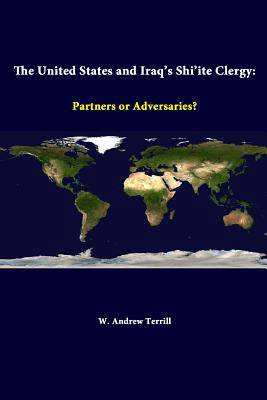
- Afhalen na 1 uur in een winkel met voorraad
- Gratis thuislevering in België vanaf € 30
- Ruim aanbod met 7 miljoen producten
- Afhalen na 1 uur in een winkel met voorraad
- Gratis thuislevering in België vanaf € 30
- Ruim aanbod met 7 miljoen producten
Zoeken
The United States And Iraq's Shi'ite Clergy
Partners Or Adversaries?
W Andrew Terrill, Strategic Studies Institute
Paperback | Engels
€ 21,45
+ 42 punten
Omschrijving
The U.S. military presence in Iraq is currently in a transitional phase. Either the anti-U.S. insurgency will be brought under control and security will be provided to those forces involved in nationbuilding; or the insurgency will expand, and U.S. goals in Iraq will be undermined by increasing civil unrest. It is imperative that the former objective be accomplished while the later fate be avoided. To ensure this outcome, U.S. policymakers must understand the internal dynamics of Iraq, including the role of Iraq's Shi'ite clerics. This monograph by Dr. W. Andrew Terrill helps to address the critical need to gain the cooperation or at least the passive tolerance of the Shi'ite clerics and community. Such an effort could become more challenging as time goes on, and one of the recurring themes of this monograph is the declining patience of the Shi'ite clergy with the U.S. presence. By describing the attitudes, actions, and beliefs of major Shi'ite clerics, Dr. Terrill underscores a set of worldviews...
Specificaties
Betrokkenen
- Auteur(s):
- Uitgeverij:
Inhoud
- Aantal bladzijden:
- 56
- Taal:
- Engels
Eigenschappen
- Productcode (EAN):
- 9781312330122
- Verschijningsdatum:
- 4/07/2014
- Uitvoering:
- Paperback
- Formaat:
- Trade paperback (VS)
- Afmetingen:
- 152 mm x 229 mm
- Gewicht:
- 95 g

Alleen bij Standaard Boekhandel
+ 42 punten op je klantenkaart van Standaard Boekhandel
Beoordelingen
We publiceren alleen reviews die voldoen aan de voorwaarden voor reviews. Bekijk onze voorwaarden voor reviews.











